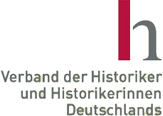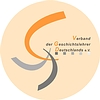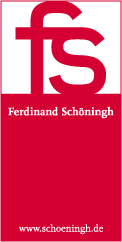


- Vortragstitel:
- Have Your Cake and Eat it too: Visions of Techno-Nature in the Marketing of NutraSweet
- Tag:
- 30.09.2010
- Epoche:
- Neuere/Neueste Geschichte
- Sektion:
- Die Technisierung der Ernährung und die Grenzen des „Natürlichen“
Abstract:
Have Your Cake and Eat it too: Visions of Techno-Nature in the Marketing of NutraSweet
Referent/in: Carolyn de la Peña, Davis
Abstract
Between 1975 and 1984, Americans increased their consumption of artificial sweetener by 150%. Some of this dramatic growth can be attributed to the general rise in dieting in the U.S. and the proliferation of saccharin-sweetened products in the mid-1970s. Most of it, however, is because of NutraSweet, a product that fundamentally changed the ways in which artificial sweeteners were marketed by businesses and regarded by consumers in the United States.
This paper explores the connection between NutraSweet, a popular brand of aspartame (calorie-less artificial sweetener), and an ethos of “natural” limitless consumption that emerged in the early 1980s in the U.S. Over the course of the 1980s, NutraSweet (and Equal), through highly sophisticated and targeted marketing campaigns, transformed artificial sweeteners from uncertain chemicals used by those who had to lose weight to healthful options for people who wanted to indulge in calories. No longer a temporary “diet” option for people who needed to shed pounds, artificial sweetener became a permanent alternative sweetening choice and a tool for healthy indulgence. This transformed the way Americans ate and the way they understood appropriate consuming.
Between 1982 and 1986, in the midst of a vacuum of government regulation and nutritional expertise, NutraSweet offered appealing promises of indulgence, expertise, and health to consumers. These were created through expensive, ubiquitous advertisements and direct-to-consumer marketing pitches from Searle Pharmaceuticals and its advertising firm, Olgivy and Mather. These informed prospective buyers of three “facts” about NutraSweet: it was healthy, it was a technology, and it made nature better. These were held together by core comparisons to bananas, milk, broccoli and assertions that aspartame was just like sugar (without calories). The rhetoric, while untrue, convinced many doubters that aspartame had made it possible to have a “free lunch”—to enjoy calories and indulge in packaged, sweet products without gaining weight. This paper analyzes the NutraSweet campaign’s messages of “techno-nature,” and argues that these were significant not just because they converted a generation of Americans to the status of permanent “dieters” (as important as that is). Also critical is the broader impact of “natural” and “limitless” consumption at this moment in American history. By teaching consumers that technology could to change nature in order to satisfy human desire, NutraSweet provided a concrete example that innovation could deliver consumption without consequence. My paper explores how NutraSweet created this message, what relationship it ultimately established between technology and “natural” consumption, and what broader implications this may have had for Americans in the midst of the “New Day” of Reganomics wherein unbridled consumer spending and market deregulation were promoted as the means to create the “healthy” nation.





